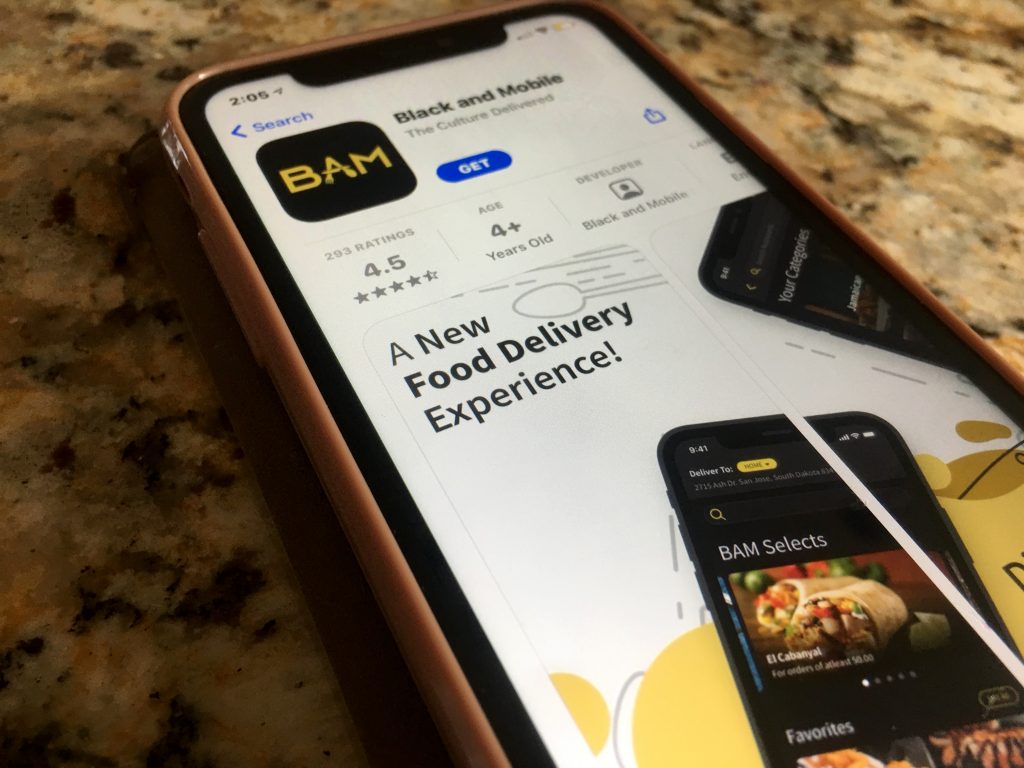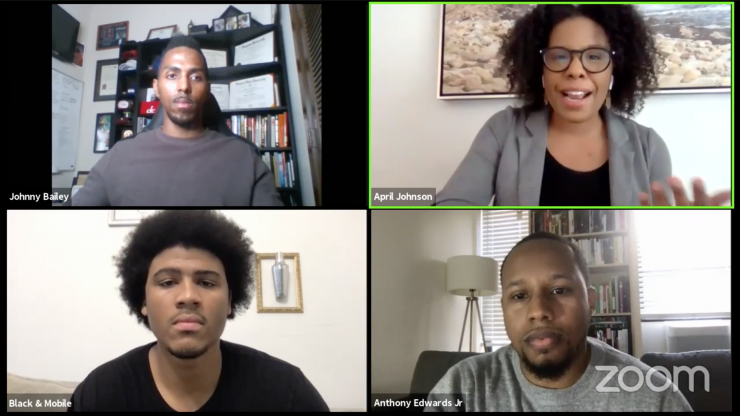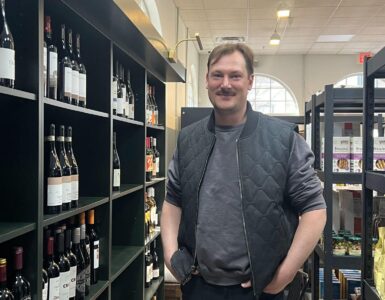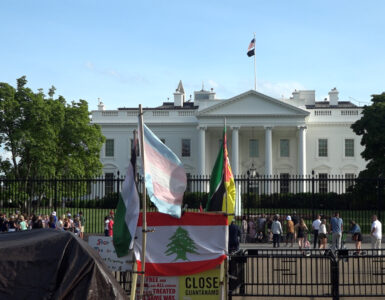Panelists stressed the importance of innovation and collaboration to Black-owned business during the COVID-19 pandemic during DMV Black Restaurant Week’s third annual conference.
The five-day conference equipped business owners with strategies and tools to adapt to the pandemic, focusing on collaboration between businesses. Free and open to the public, it was held virtually Nov. 10-14.
Collaboration is ‘imperative’
Marketing strategist Johnny Bailey knows better than most the importance of technology in growing small, minority-owned businesses. As D.C.’s Grow With Google Digital Coach, he provides digital skills workshops to help Black and Latinx small businesses boost their digital presence in order to grow. He is also the founder of the ShineHard Foundation, which aims to eliminate the racial wealth gap by empowering Black entrepreneurs.
Bailey moderated the conference’s “Embracing Technology – Food + Tech,” a conversation about the importance of technology for Black-owned restaurants and bars in D.C.
“Black businesses are behind in our ability to leverage technology to reach new audiences or communicate to current customers new hours of operation or business practices [during COVID],” Bailey said. “Some of the things that seem easy to do are also easy not to do.”
He said it is “imperative” for the Black community to patronize business within their community to the same extent that other racial and ethnic groups support their businesses.
“We need to encourage Black entrepreneurs to occupy spaces in the marketplace so there are places for Black customers to spend their dollar,” Bailey said.
Bailey also argues there is an “over-saturation” of Black ownership in certain businesses and that more diversity would benefit the community as there would be a greater “Black presence” on every ladder of the supply chain. He said Black-owned grocery stores are important, but it is equally important for there to be Black farmers to supply them with produce.
Bailey also talked about how the information era can help Black entrepreneurs understand and adapt to challenges, and operate in a shared group interest.
‘Bridging the virtual with real life’
When the pandemic struck, it made April Johnson’s app Happied “useless” overnight. The D.C.-based platform connected consumers to happy hours to “build community around food and drink, while exploring new restaurants and bars,” but traditional happy hours ceased as bars closed and people began to socially distance.
“We had to quickly think about how we could continue to provide that same sense of community to the thousands of people that use our app and to the restaurant and bar community,” Johnson said.
Appearing on the DMV BRW panel, Johnson explained how her team quickly redefined their business model and the technology they relied on.
Happied began hosting virtual mixology classes for a $10 fee, helping to keep “displaced bartenders” employed while providing “community-like experiences.” They’ve also partnered with third parties to deliver the necessary ingredients to participants and also now offer their own cocktail kits.
Realizing the potential for corporate collaboration, Johnson began to offer these events to companies that wanted to “keep their team connected or clients engaged.” She reached out to law firms she had connections with and now primarily organizes corporate events, where participants get kits sent to their homes and follow along on Zoom.
“The goal is to create seamless events that bridge the virtual with real life as much as possible,” Johnson said. “We want to keep people connected and teams engaged, which also helps the bottom line for the businesses at the same time.”
Her advice to other businesses who are rethinking their business model is to think about how to continue fulfilling their core mission in new circumstances.
Johnson’s biggest focus when it comes to technology is integration, how to connect all the parts of the new services. She uses Squarespace for bookings, HubSpot to interact with customers, Zoom to host events and Zapier to link all of the programs into a single workflow.
‘Everyone can eat and win’
In 2017, David Cabello and his twin decided to drop out of college at 22 to build something to help connect their community.
Two years later, Cabello launched Black & Mobile. Serving Atlanta, Detroit and Philadelphia, it is the first Black-owned delivery service that partners solely with Black-owned restaurants to increase their exposure.

According to Cabello, Black & Mobile hosts over 3,600 restaurants and has 300,000 users.
He said he noticed it was difficult to intentionally find Black-owned restaurants because Google didn’t cater to searches like that at the time, so he decided to create one.
“We know where everyone else’s businesses are but don’t know where ours are,” Cabello said during the panel.
In addition to hosting businesses on his app, Cabello encourages collaboration between the business owners to help build websites, apps and a robust online presence that he said many Black-owned businesses lack.
Kristal Willaims, co-owner of the Shaw restaurant FishScale, expressed Black business owners need more support in technological literacy. FishScale was one of 86 restaurants, catering services, food trucks and beverage businesses participating in DMV Black Restaurant Week.
The rise of the Black Lives Matter movement has inspired an increased interest in supporting Black-owned businesses across the country. It has also prompted other food delivery services to spotlight Black-owned businesses on their platforms.
However, Cabello said that Black & Mobile remains the best choice because they are invested in the success of the businesses.
“[On Black & Mobile], they aren’t competing with McDonalds or against other Black businesses,” Cabello said during the panel. “Everyone is bringing in their traffic so everyone can eat and win.”















Add comment